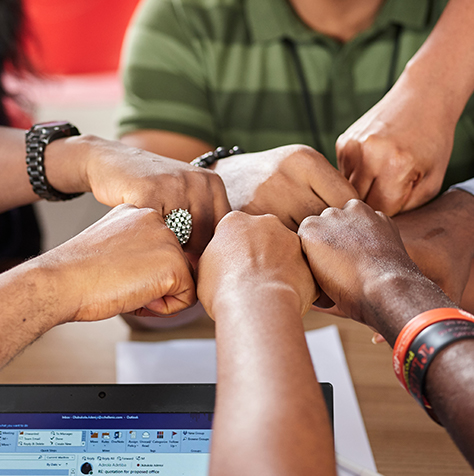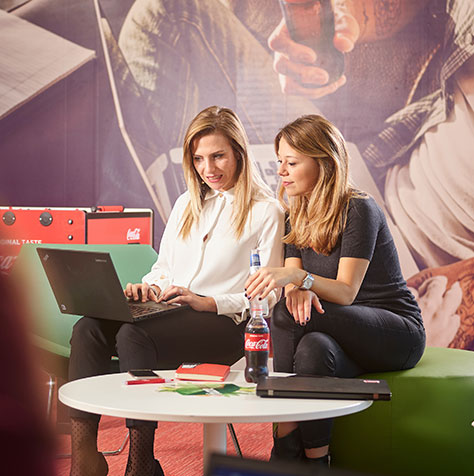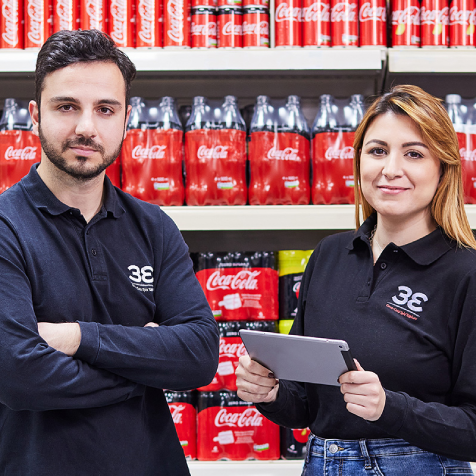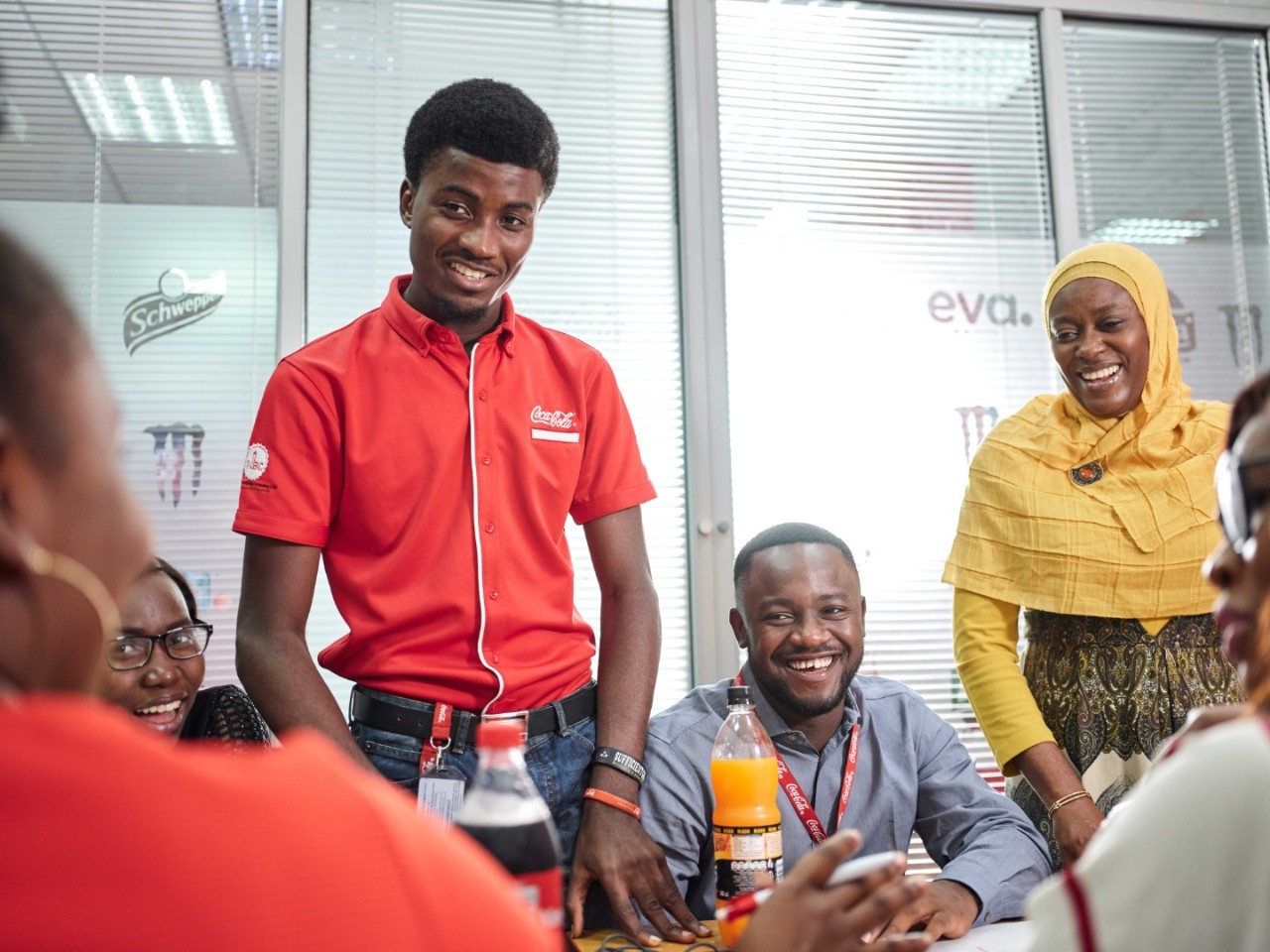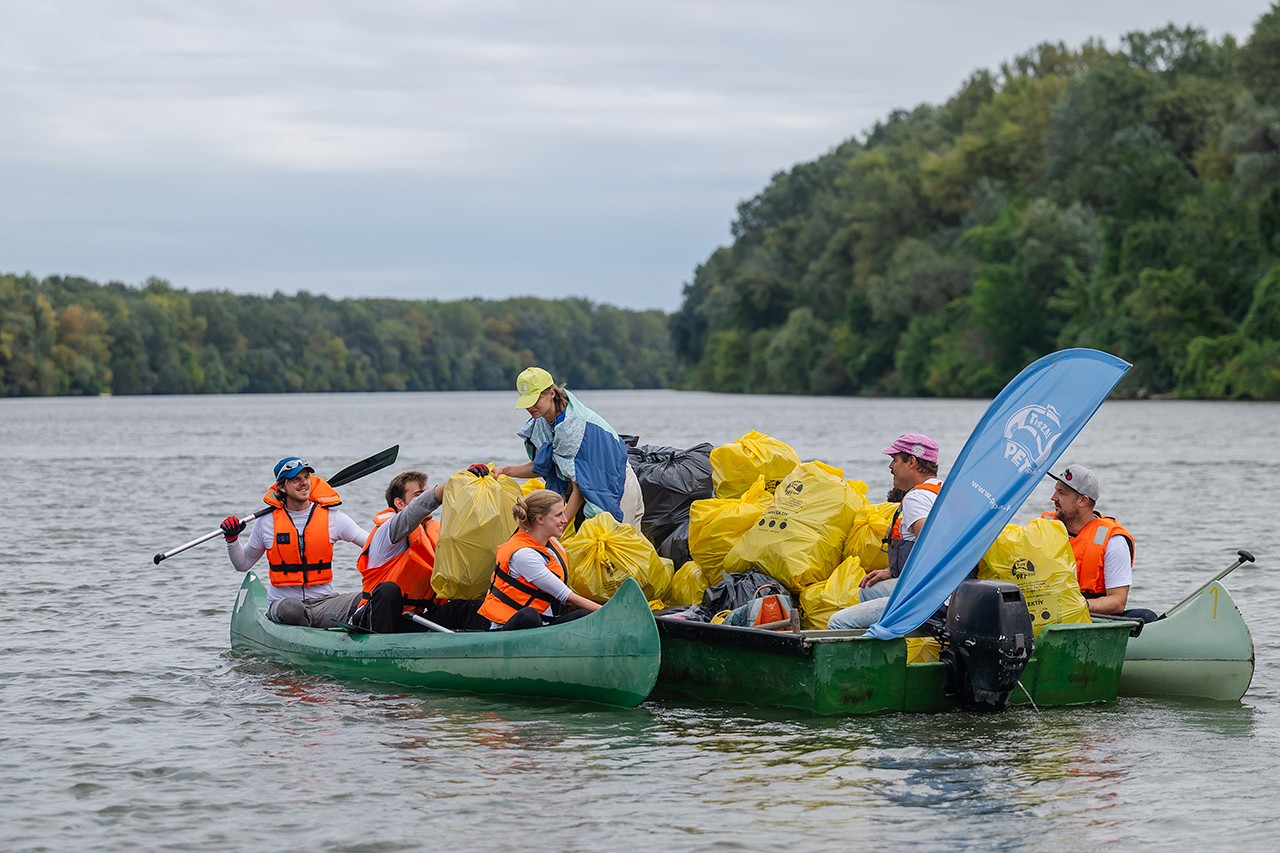We make the health and safety of our people, contractors and visitors a key priority and place emphasis on the critical importance of ensuring the well-being of everyone at our workplaces.
Mission 2025 sustainability commitments
As part of our Mission 2025 sustainability commitments, we have the following targets:
- ZERO work-related fatalities
- Reduce lost time accidents per 100 FTE by 50% by 2025 vs. the 2017 baseline
Alongside, we are monitoring other relevant H&S indicators, such as Near miss, Severe near miss, Medical treatment cases, First aid, Behaviour Based Safety (BBS) observations conducted, Safety barrier removal rate, BBS observers trained, Accidents per million km driven (APMK).
In 2024, we achieved 0.30 lost time accident rate (LTAR) per 100 FTEs, and the Lost Time Incident Frequency Rate for contractors (per million hours worked) was reported 1.31. Our key Road accident indicator, Accidents per million kilometers driven (APMK) deteriorated by 0.03 vs last year and achieved 1.66.
In Coca-Cola HBC we have implemented thorough process for assessing Occupational Health and Safety risks for all routine and non-routine activities across the organization. To register continuous improvement cycle and assuring health and safety of all employees, contractors and visitors, learnings from all incidents recorded in Coca-Cola HBC are included in this process.
All health and safety related incidents are being investigated locally by cross-functional teams of experts from different departments. Steps taken for the investigation are conducted as per “Incident Investigation training material/curriculum” included in Supply Chain Academy. The investigation teams also use Structured Problem-Solving methodology, including Fishbone analysis and 5 WHY principles. The analysis of incidents is performed in steps: 1. interviews, 2. incident preservation procedure, 3. root cause analysis, and 4. corrective/preventive action plan.
After the incident investigation, a one-page lesson learned document is created and shared locally with all respective teams. It serves as a tool for learning and prevention of similar incidents in the future. Selected one-pager lessons learned are published on a special internal platform for knowledge sharing, accessible for all.
All Business units are regularly conducting risk and hazard identification with respective corrective actions defined. Risk hazard assessment is in line with legal requirements and follows the internal OH&S management system processes.
On top of the above and to proactively prevent any at-risk situations potentially leading to occupational health incidents, severe injuries or fatalities, we have introduced new measure being reported by all our operations, called Potential Severe Injuries and Fatalities (SIFp). All SIFp identified (e.g., severe near miss, incidents etc.) trigger revision of the risk assessment and hazard mitigation measures.
To take learnings from the severe near misses, SIF potentials and all incidents, we share and publish individual lessons learned across all our operations.
H&S Programmes and initiatives
Our fleet safety training programmes aim to improve safety for all drivers within the Group. The blend of classroom and on-the-road training elements is adjusted for different groups, reflecting their relative risk classification. To reduce the number of road accidents, we have continued installing collision avoidance technologies in fleet vehicles.
In 2024, we also continued our Behaviour Based Safety programme with the inclusion of HOP philosophy (Human and Operational Principles) implemented across manufacturing and non-manufacturing locations. We have reached 99% program coverage in manufacturing, 98% in warehousing, 98% in commercial and 72% of our offices have the programme in place, too. Since the beginning of the program launch, we have trained 10,465 our employees and 3,220 contractors as behaviour-based safety observers. On last year, we succeeded to eliminate 86.1% barriers to safety identified under this programme.
Regular health and safety awareness trainings are completed by all our employees. In 2024 we have launched a new H&S e-learning course mandatory for all our employees. Moreover, we deployed monthly awareness campaigns, so called “health and safety monthly awareness days”, where we engage with employees across the markets in different health and safety topics.
Since 2021 we launched a new The Coca-Cola Company programme called “Life Saving Rules”. It promotes 14 safety rules with specific requirements covering full scope of our processes across the entire organisation. Compliance with these requirements is being assessed on a quarterly basis in every Coca-Cola HBC relevant location – in 2024 CCH Compliance rate achieved 86.6%. Based on these assessments, each country has developed its own corrective actions addressing critical gaps and reducing risk of workplace related accidents.
H&S Management Systems
We’ve implemented our occupational health and safety (OHS) management system based on both national standards in the country where we operate and based on The Coca-Cola Company KORE requirements, which are either equal or in many cases stricter than the local regulation/requirements.
Our operations are certified in ISO 45001 certification: 100% of manufacturing bottling sites representing 100% of beverage production volume. 100% of all our direct operations are covered by the internal Health and Safety audit process to assure full compliance with the local health and safety standards and our internal requirements. This includes manufacturing plants, offices, sales offices, our own distribution centers and warehouses, the contractors working in our premises, and third-party contractors. As part of the OHS management system, regular on-site inspections are performed by the local safety teams, by central safety team and by so-called cross-border auditors (internal team of safety experts) who verify compliance, share the expertise and best practice in Risk mitigation. Our data collection and reporting system uses special software and it is in accordance with the Global Reporting Initiative (GRI) Standards. The data is analyzed for safety performance indicators to ensure that operations are properly monitored and that corrective actions are taken in a timely manner. OHS performance of each facility and BU is regularly reported to the Executive Leadership Team (ELT).
We expect our suppliers to provide a safe workplace with policies and practices in place to minimise the risk of accidents, injury, and exposure to health risks. That is why our suppliers are required to acknowledge acceptance to comply with our Supplier Guiding Principles (SGPs) and with the Principles for Sustainable Agriculture (PSA), which includes: compliance with local legal and Coca-Cola HBC Occupational Health and Safety requirements; risk management through Health & Safety management plans; providing and requiring the use of Personal Protective Equipment (PPE); providing trainings on health and safety, including the use of PPE; assuring all workers have access to drinking water, toilets and hygiene facilities and are made aware of medical care facilities.
We are committed to providing our employees with a safe and healthy work environment that safeguards their mental and physical wellbeing. To support this objective, we have a strong health and safety programme in place to drive a harmonised approach to mitigating safety risks and create a culture of continuous improvement.
We have established several Healthy working environment initiatives focusing on ergonomic workplace, illumination, noise, indoor air quality and humidity. For each of these, specific design requirements are described in our Engineering Specifications and regularly trainings are performed to the employees (e.g., via specific Toolbox Talks, Supply Chain Academy, etc). Besides, noise and indoor air control are regulated by The Coca-Cola Company (TCCC) as a mandatory requirement for bottlers. Compliance to requirements is controlled by TCCC by regular on-site or virtual audits. In 2024, there were 16 H&S relevant compliance on-site audits completed by TCCC, 14 audits were in our Manufacturing plants and two Route To Market related.
Coca-Cola HBC conducts compliance assurance process through internal audits, audits conducted by TCCC and external audits as per ISO 45001 requirements and Supplier Guiding Principles (SGP).
For the evaluation phase of acquisitions and mergers related to the manufacture, storage, and distribution of products and services for CCH and its subsidiary companies, we adhere to the due diligence process. The technical aspects of due diligence include Quality/Food Safety, Engineering, Environmental, Hydro Geological, and Health & Safety considerations. Safety & Environmental Due Diligence is also a supplemental requirement under TCCC Operating Unit Governance.
Coca-Cola HBC and Emergency Preparedness
In Coca-Cola HBC we have local emergency preparedness procedures available and annually tested in each site. Testing is primarily done for fire safety and at manufacturing locations. It is also ran for the emergency spill preparedness and throughout working shifts. This testing includes assurance of employee’s safety, and people evacuation and are conducted with the collaboration with local medical and fire protection emergency services. Based on safety risk assessment for high complexity manufacturing sites, we have trained dedicated fire emergency response teams.
The Group Business resilience team is leading emergency preparedness assessment of all our operating business units. This assessment includes H&S response in emergency situations.


